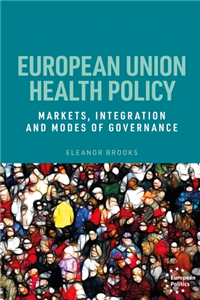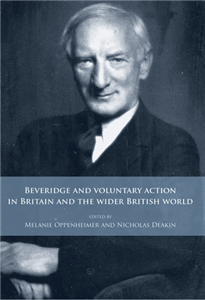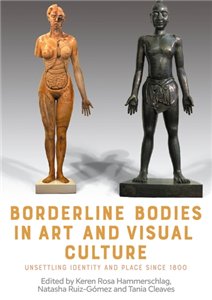Your Search Results
-
Literasia Creativa
Literasia is a creative agency established in 2019. We are focusing on bringing the best literary talents and creative creators from Southeast Asia to the world stage.
View Rights Portal
-
Promoted ContentHumanities & Social SciencesOctober 2021
Higher education in a globalising world
Community engagement and lifelong learning
by Peter Mayo
This book focuses on current policy discourse in Higher Education, with special reference to Europe. It discusses globalisation, Lifelong Learning, the EU's Higher Education discourse, this discourse's regional ramifications and alternative practices in Higher Education from both the minority and majority worlds with their different learning traditions and epistemologies. It argues that these alternative practices could well provide the germs for the shape of a public good oriented Higher Education for the future. It theoretically expounds on important elements to consider when engaging Higher Education and communities, discussing the nature of the term 'community' itself. Special reference is accorded to the difference that lies at the core of these ever-changing communities. It then provides an analysis of an 'on the ground project' in University community engagement, before suggesting signposts for further action at the level of policy and provision. This book is relevant to United Nations Sustainable Development Goal 4, Quality education
-
Promoted ContentHumanities & Social SciencesMarch 2017
Cultural identities and the aesthetics of Britishness
by Dana Arnold
Considers how notions of Britishness were constructed and promoted through architecture, landscape, painting, sculpture and literature. Maps important moments in the self-conscious evolution of the idea of 'nation' against a broad cultural historical framework. An important addition to the field of postcolonial studies as it looks at how British identity creation affected those living in England - most study in this area has thus far focused on the effect of such identity creation upon the colonial subject. Broad appeal due to wide subject matter covered. Examines just how 'constructed' a national identity is - past and present.
-
 Trusted Partner
Humanities & Social SciencesJanuary 2012
Trusted Partner
Humanities & Social SciencesJanuary 2012Roger II and the creation of the Kingdom of Sicily
by Graham Loud, Rosemary Horrox, Simon Maclean
-
 Trusted Partner
Humanities & Social SciencesJanuary 2014
Trusted Partner
Humanities & Social SciencesJanuary 2014Roger II and the creation of the Kingdom of Sicily
by Graham Loud
-
 Trusted Partner
Humanities & Social SciencesMarch 2019
Trusted Partner
Humanities & Social SciencesMarch 2019Irish women and the creation of modern Catholicism, 1850–1950
by Cara Delay
-
 Trusted Partner
Humanities & Social SciencesJuly 2025
Trusted Partner
Humanities & Social SciencesJuly 2025European Union health policy
Markets, integration and modes of governance
by Eleanor Brooks
The first book-length analysis of EU health policy since the COVID-19 pandemic, encompassing the creation of the European Health Union and the Recovery and Resilience Facility, this volume offers a timely and accessible analysis of the EU's health policy, institutions and governance. Focusing on the EU's health objectives and how they are pursued, it offers a detailed overview of the development of EU health policy, and five in-depth case studies of specific policy fields. The book will appeal to academic and policy audiences interested in the EU's health objectives and how it pursues them.
-
 Trusted Partner
Humanities & Social SciencesMarch 2017
Trusted Partner
Humanities & Social SciencesMarch 2017Sex, politics and empire
A postcolonial geography
by Richard Phillips
Colonial governments, institutions and companies recognised that in many ways the effective operation of the Empire depended upon sexual arrangements. For example, nuclear families serving agricultural colonization, and prostitutes working for single men who powered armies and plantations, mines and bureaucracies. For this reason they devised elaborate systems of sexual governance, such as attending to marriage and the family. However, they also devoted disproportionate energy to marking and policing the sexual margins. In Sex, Politics and Empire, Richard Phillips investigates controversies surrounding prostitution, homosexuality and the age of consent in the British Empire, and revolutionises our notions about the importance of sex as a nexus of imperial power relations.
-
 Trusted Partner
Humanities & Social SciencesDecember 2010
Trusted Partner
Humanities & Social SciencesDecember 2010Beveridge and Voluntary Action in Britain and the Wider British World
by Melanie Oppenheimer, Nicholas Deakin
The relationship between the state and the voluntary sector has changed significantly since 1948 when Beveridge's major report, Voluntary Action, was first published. Sixty years later, a group of historians analyse and reassess the impact of Beveridge's ideas about voluntary action for social advance in this timely volume. Using examples from the UK, Australasia and Canada, this book clearly articulates the importance and significance of Beveridge's ideas on voluntary action within an international context. With the emphasis of governments on the importance of the voluntary or 'third sector' and the development of policies and practices to enhance social capital, build civil society and engage communities, this book will be invaluable for those interested in how the third sector has evolved over time. It will be of interest to historians, social policy researchers, political theorists, economists and educationalists. ;
-
 Trusted Partner
Humanities & Social SciencesApril 2016
Trusted Partner
Humanities & Social SciencesApril 2016University engagement and environmental sustainability
by Michael Osborne, Patricia Inman, Diana Robinson
Universities have a key role to play in contributing to environmental development and combating climate change. The chapters within this volume detail the challenges faced by higher education institutions in considering environmental sustainability, and provide both a broad view of university engagement and a detailed examination of various projects. As part of this series in association with the Place and Social Capital and Learning (PASCAL) International Observatory, the three key PASCAL themes of place management, lifelong learning and the development of social capital are considered throughout the book. While universities have historically generated knowledge outside of specific local contexts, this book argues that it is particularly important for them to engage with the local community and to consider diverse perspectives and assets when looking at issues within an ecological context. The chapters in this volume provide new perspectives and frames of reference for transforming universities by engaging in the development of resilient communities.
-
 Trusted Partner
Humanities & Social SciencesJanuary 2020
Trusted Partner
Humanities & Social SciencesJanuary 2020Higher education in a globalising world
Community engagement and lifelong learning
by Peter Mayo, Michael Osborne
This book focuses on current policy discourse in Higher Education, with special reference to Europe. It discusses globalisation, Lifelong Learning, the EU's Higher Education discourse, this discourse's regional ramifications and alternative practices in Higher Education from both the minority and majority worlds with their different learning traditions and epistemologies. It argues that these alternative practices could well provide the germs for the shape of a public good oriented Higher Education for the future. It theoretically expounds on important elements to consider when engaging Higher Education and communities, discussing the nature of the term 'community' itself. Special reference is accorded to the difference that lies at the core of these ever-changing communities. It then provides an analysis of an 'on the ground project' in University community engagement, before suggesting signposts for further action at the level of policy and provision.
-
 Trusted Partner
Business, Economics & LawMay 2024
Trusted Partner
Business, Economics & LawMay 2024Governance, democracy and ethics in crisis-decision-making
The pandemic and beyond
by Caroline Redhead, Melanie Smallman
This book is a powerful addition to a developing literature informed by arts and humanities research carried out during the COVID-19 pandemic. Investigating the impacts of crisis governance and decision-making on people and populations, the book brings together microbial organisms and humans, children and data, decision-making and infection prevention, publics and process, global vaccine distribution and citizens' juries. Through its eight chapters, the book stimulates broadly-drawn discussions about exceptional executive powers in an emergency, the role of trust, and the importance of the principles of good governance - such as selflessness, ethics, integrity, accountability and honesty in leadership. The lessons drawn out in this book will support future decision-makers in both ordinary times and extra-ordinary emergencies.
-
 Trusted Partner
Humanities & Social SciencesJune 2025
Trusted Partner
Humanities & Social SciencesJune 2025Local government and democracy in Britain
by Neil Barnett, J. Chandler
Local government in the UK is in crisis. It is now neither local in terms of the geography and populations of its principle units, nor does it truly govern in these areas. As this book reveals, over the previous 200 years local government has moved from a system in which local interests held governance over localities to one in which central government and national and multi-national agencies such as corporate businesses hold governance over local and community decision-making. These changes seriously undermine the important role that local government can play in liberal democracy in the UK. The book explains the nature of local government today and asks if there is any possibility of change.
-
 Trusted Partner
The ArtsJune 2026
Trusted Partner
The ArtsJune 2026Borderline bodies in art and visual culture
Unsettling identity and place since 1800
by Keren Hammerschlag, Natasha Ruiz-Gómez, Tania Anne Cleaves
Borderline bodies offers original interpretations of visual representations of human bodies as bounded and unbounded, fortified and permeable, mobile and static-subject to borders and able to traverse and challenge them. It also takes as its focus images and objects that might be considered 'borderline' because they sit at the intersection of disciplines or sit outside accepted notions of what constitutes serious 'art.' By mapping the ways human bodies traverse borders and straddle-even dismantle-categories, this volume's essays approach afresh the relationship of bodies to traditional modes of representation, especially in art and medicine, and encourage us to think anew about how we understand the relationship between human corporeality, identity and place. Critical transdisciplinary and transnational analyses of objects and images from a range of geographies shed new light on the themes of: bodies and identity; typologies of the body; racialised bodies; 'normal' and 'abnormal' bodies; encounters between bodies; bodies in transition; bodies and mobility; and the bounded and unbounded human body. The outcome is a fresh approach to depictions of the human body produced for the purposes of artistic and medical education, aesthetic edification, and scientific and professional advancement, which disrupts assumptions about the normative human body perpetuated through Western image-making traditions.
-
 Trusted Partner
Trusted Partner
-
 Trusted Partner
20th century history: c 1900 to c 2000October 2013
Trusted Partner
20th century history: c 1900 to c 2000October 2013Northern Ireland in the Second World War
Politics, economic mobilisation and society, 1939–45
by Philip Ollerenshaw
This original and distinctive book surveys the political, economic and social history of Northern Ireland in the Second World War. Since its creation in 1920, Northern Ireland has been a deeply divided society and the book explores these divisions before and during the war. It examines rearmament, the relatively slow wartime mobilisation, the 1941 Blitz, labour and industrial relations, politics and social policy. Northern Ireland was the only part of the UK with a devolved government and no military conscription during the war. The absence of military conscription made the process of mobilisation, and the experience of men and women, very different from that in Britain. The book's conclusion considers how the government faced the domestic and international challenges of the postwar world. This study draws on a wide range of primary sources and will appeal to those interested in modern Irish and British history and in the Second World War.
-
 Trusted Partner
Humanities & Social SciencesJanuary 2011
Trusted Partner
Humanities & Social SciencesJanuary 2011Public Schools and Private Education
The Clarendon Commission 1861–64 and the Public Schools Acts
by Colin Shrosbree
The great public schools are central to any discussion of English secondary education. Founded as public endowments, they are the basis of private education. Set apart from the other grammar schools by the Clarendon Commission of 1861, their influence on the state system has been enormous. Severed from the national provision of public education, they have put prestige and ancient endowments at the service of wealth and patronage. This book, available in paperback for the first time, shows how this came to pass. How the schools' attempts at reform, reliance on fees, the defence of the Classics, public criticism of Eton, European ideas and foreign economic competition led to the Carendon Commission. How Lord Clarendon himself, in conflict with Palmerston over foreign policy, came to lead the Commission and attempt curricular reform. How the Public Schools Acts created a separate school system for the benefit of Eton and how the Lords sought to establish that system for the upper classes. How the fee-paying, class-based principles of the Commission influenced the other grammar schools and all later English education. How the Public schools Acts reduced the influence of local parents and how new governors were appointed nationally. How Shrewsbury School, an example of an endowed grammar school with strong local connections, came to be part of the public school system. It is not the conflict between state education and private schools that makes so much discussion of English education bitter and controversial. It is the loss to state education of the public schools - the original political purpose of the Acts - and the impoverishment of national education by the class divisions of Victorian legislation. ;
-
 Trusted Partner
Humanities & Social SciencesNovember 2021
Trusted Partner
Humanities & Social SciencesNovember 2021Anti-racist scholar-activism
by Remi Joseph-Salisbury, Laura Connelly
-
 Trusted Partner
Humanities & Social SciencesApril 2023
Trusted Partner
Humanities & Social SciencesApril 2023The fall and rise of the English upper class
Houses, kinship and capital since 1945
by Daniel R. Smith
The fall and rise of the English upper class explores the role traditionalist worldviews, articulated by members of the historic upper-class, have played in British society in the shadow of her imperial and economic decline in the twentieth century. Situating these traditionalist visions alongside Britain's post-Brexit fantasies of global economic resurgence and a socio-cultural return to a green and pleasant land, Smith examines Britain's Establishment institutions, the estates of her landed gentry and aristocracy, through to an appetite for nostalgic products represented with pastoral or pre-modern symbolism. It is demonstrated that these institutions and pursuits play a central role in situating social, cultural and political belonging. Crucially these institutions and pursuits rely upon a form of membership which is grounded in a kinship idiom centred upon inheritance and descent: who inherits the houses of privilege, inherits England.
-
 Trusted Partner
Trusted Partner
-
 Trusted Partner
Humanities & Social SciencesSeptember 2020
Trusted Partner
Humanities & Social SciencesSeptember 2020Empire and enterprise
Money, power and the Adventurers for Irish land during the British Civil Wars
by David Brown
This book is about the transformation of England's trade and government finances in the mid-seventeenth century, a revolution that destroyed Ireland. In 1642 a small group of merchants, the 'Adventurers for Irish land', raised an army to conquer Ireland but sent it instead to fight for parliament in England. Meeting secretly at Grocers Hall in London from 1642 to 1660, they laid the foundations of England's empire and modern fiscal state. But a dispute over their Irish land entitlements led them to reject Cromwell's Protectorate and plot to restore the monarchy. This is the first book to chart the relentless rise of the Adventurers and their profound political influence. It is essential reading for students of Britain and Ireland in the mid-seventeenth century, the origins of England's empire and the Cromwellian land settlement.






















